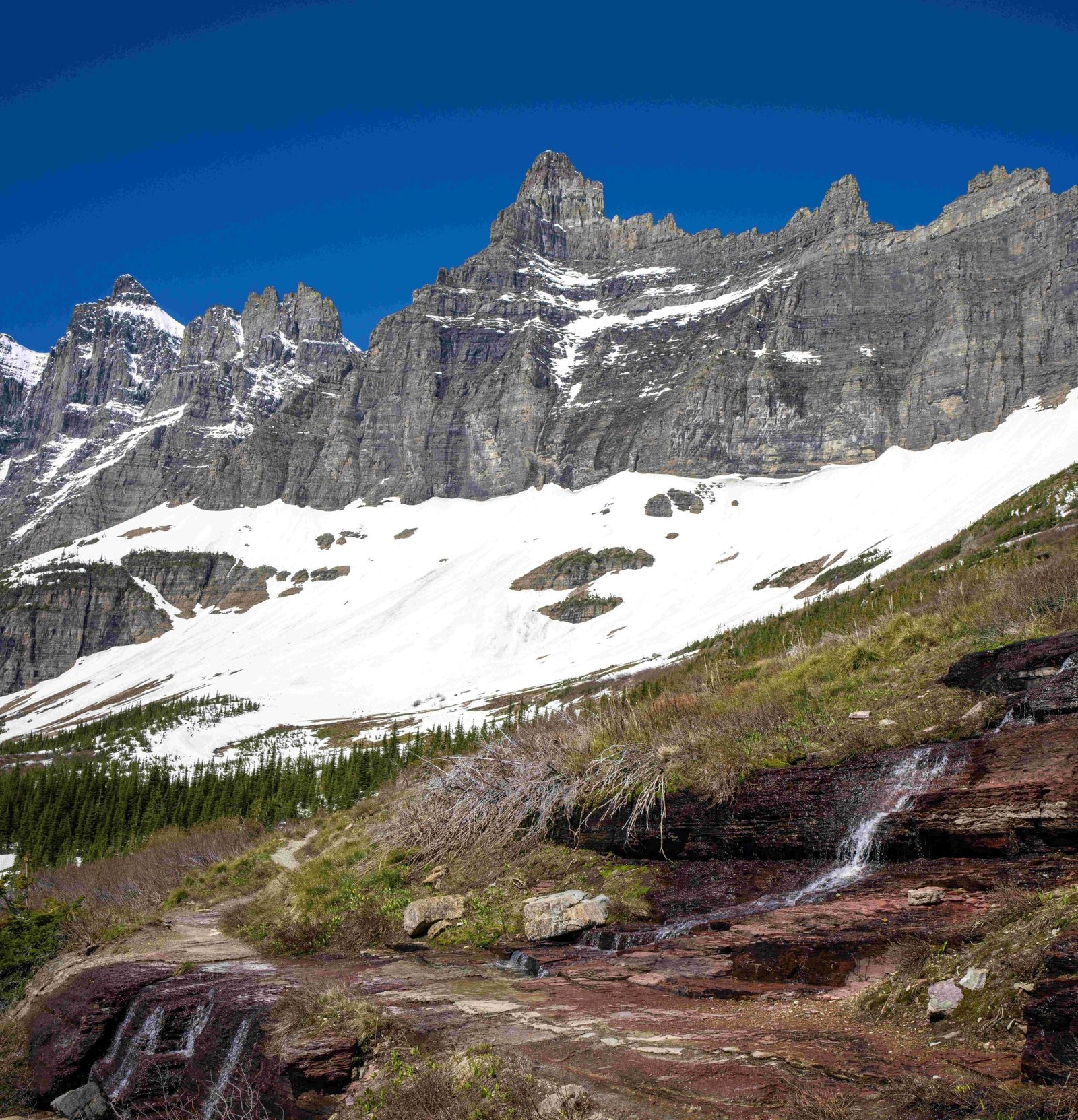The northern lights forecast for Glacier National Park tomorrow indicates a moderate chance of aurora visibility. With the current solar cycle approaching its peak, geomagnetic activity is expected to be higher than average. The KP index, a key measure of auroral activity, is predicted to reach 5-6, which may be sufficient for northern lights viewing in the park under ideal conditions. Clear skies and minimal light pollution will be crucial for optimal viewing opportunities.
What Are the Current Aurora Conditions for Glacier National Park?

The aurora forecast for Glacier National Park tomorrow shows promising signs for potential northern lights viewing. Here’s a breakdown of the current conditions:
- KP Index Forecast: 5-6 (moderate to strong geomagnetic activity)
- Solar Wind Speed: Approximately 450 km/s
- Bz Component: Slightly negative, favorable for aurora formation
- Probability of Visible Aurora: 40-60%
These conditions suggest a reasonable chance of seeing the northern lights, especially in areas with clear, dark skies away from light pollution.
What Weather Conditions Are Expected for Aurora Viewing?

Weather plays a crucial role in northern lights visibility. For Glacier National Park tomorrow, the forecast indicates:
- Cloud Cover: 20-30% (mostly clear skies)
- Temperature: 25°F to 35°F (-4°C to 2°C)
- Wind Speed: 5-10 mph (8-16 km/h)
- Precipitation: No significant precipitation expected
These conditions are generally favorable for aurora viewing, with mostly clear skies and relatively mild temperatures for the season.
Where Are the Best Locations for Northern Lights Viewing in Glacier National Park?
Glacier National Park offers several excellent locations for northern lights viewing. Here are some top spots:
- Lake McDonald
- GPS Coordinates: 48.6123° N, 113.8863° W
- Accessibility: Easy access by car
-
Features: Wide-open views, reflective water surface
-
Bowman Lake
- GPS Coordinates: 48.6333° N, 114.1833° W
- Accessibility: Requires a drive on unpaved roads
-
Features: Remote location, minimal light pollution
-
Logan Pass
- GPS Coordinates: 48.6967° N, 113.7183° W
- Accessibility: Accessible via Going-to-the-Sun Road (seasonal)
-
Features: High elevation, panoramic views
-
Two Medicine Lake
- GPS Coordinates: 48.4833° N, 113.3667° W
- Accessibility: Easily accessible by car
-
Features: Beautiful lake setting, mountain backdrop
-
Apgar Mountain
- GPS Coordinates: 48.5167° N, 113.9167° W
- Accessibility: Requires a short hike
- Features: Elevated viewpoint, clear northern horizon
What Equipment Should I Bring for Northern Lights Photography?
To capture the northern lights in Glacier National Park, consider bringing the following equipment:
- DSLR or mirrorless camera with manual settings
- Wide-angle lens (14-24mm recommended)
- Sturdy tripod
- Remote shutter release or intervalometer
- Extra batteries (cold temperatures drain batteries quickly)
- Headlamp with red light mode
- Warm clothing and hand warmers
What Are the Recommended Camera Settings for Aurora Photography?
For optimal aurora photography in Glacier National Park, try these camera settings:
| Setting | Recommendation |
|---|---|
| Aperture | f/2.8 – f/4 |
| ISO | 1600 – 3200 |
| Shutter Speed | 5 – 20 seconds |
| White Balance | 3500K – 4500K |
| Focus | Manual, set to infinity |
Adjust these settings based on the aurora’s intensity and your specific location within the park.
Are There Any Guided Tours or Events for Northern Lights Viewing?
While Glacier National Park doesn’t offer official northern lights tours, there are some options for guided experiences:
-
Glacier Adventure Guides: Offers nighttime snowshoe tours that may include aurora viewing if conditions are favorable.
-
Glacier Photo Workshops: Occasionally runs night photography workshops that can coincide with northern lights activity.
-
Park Ranger Programs: Check with the visitor center for any scheduled astronomy or night sky programs that might include aurora information.
It’s important to note that these tours and events are subject to weather conditions and aurora activity. Always check with the providers for the most up-to-date information.
What Safety Precautions Should I Take for Night Viewing in Glacier National Park?
When venturing out for northern lights viewing in Glacier National Park, prioritize safety with these precautions:
- Inform someone of your plans and expected return time
- Carry bear spray and know how to use it
- Bring plenty of warm layers, including insulated boots and hand warmers
- Pack extra food, water, and a first aid kit
- Ensure your vehicle has a full tank of gas and is equipped for winter conditions
- Carry a reliable communication device, as cell service may be limited
- Be aware of park regulations and closures, especially during winter months
How Can I Stay Updated on Aurora Forecasts During My Visit?
To stay informed about northern lights forecasts during your visit to Glacier National Park:
- Aurora Alert Apps:
- Aurora Alert
- My Aurora Forecast
-
Northern Light Aurora Forecast
-
Websites:
- NOAA’s Space Weather Prediction Center
-
Aurora Alert
-
Local Resources:
- Check with park rangers at visitor centers
- Follow Glacier National Park’s social media accounts for updates
Remember that aurora forecasts can change rapidly, so it’s best to check multiple sources and be prepared for varying conditions.
By following this comprehensive guide, you’ll be well-prepared for your northern lights viewing experience in Glacier National Park tomorrow. Remember to respect the park’s natural environment, follow all park regulations, and enjoy the breathtaking beauty of the aurora borealis in one of America’s most stunning national parks.
References:
1. NOAA Space Weather Prediction Center
2. Glacier National Park Official Website
3. Aurora Alert
4. Glacier Adventure Guides